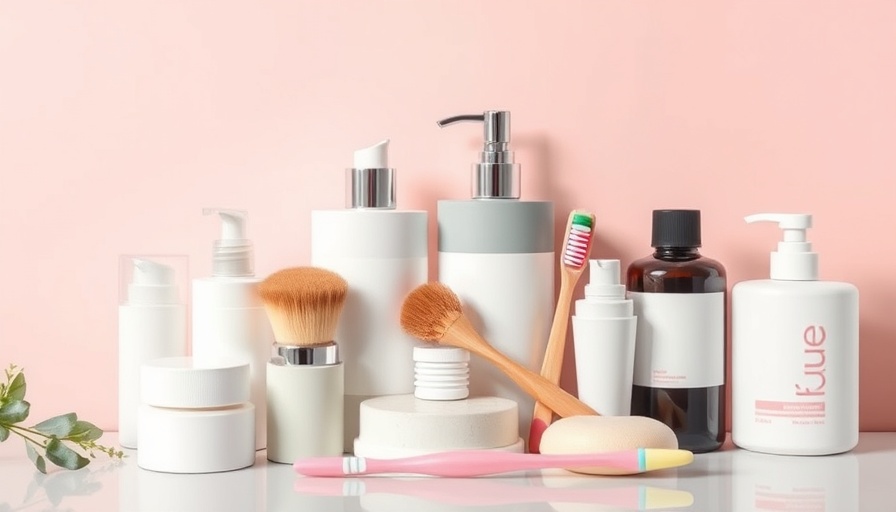
Rethinking Personalized Hygiene for Every Day
Personal hygiene often feels like a straightforward aspect of daily life, yet for many facing chronic illnesses, disabilities, or sensory sensitivities, it can emerge as a significant challenge. The process of maintaining personal hygiene should focus less on perfection and more on adaptability, ensuring that every individual can create a routine that honors their personal circumstances.
Finding Your Comfortable Routine
On some days, you may feel capable of embarking on a complete hygiene ritual with showers, haircare, and meticulously crafted skincare routines. However, on others, even brushing your teeth might feel like an insurmountable task. This disparity is entirely valid! Inclusive personal hygiene is less about following a prescribed method and more about discovering what works for you on a given day, allowing for an array of possible solutions based on physical and emotional needs.
Streamlining Oral Care
For those grappling with joint pain, limited movement, or sensory sensitivities, the act of brushing and flossing can drain energy levels quickly. Electric toothbrushes can simplify the effort needed to maintain oral health, delivering thorough cleaning with minimal hand movements. Models equipped with timers can also help nudge those who struggle with executive dysfunction toward consistency in their oral care.
Water flossers present another excellent alternative to traditional flossing. They require less dexterity, enabling easy cleaning between teeth. Additionally, on days when brushing feels impossible, alternatives such as tooth wipes and mouth sprays serve as handy refreshers. While not completely replacing traditional methods, they offer a bridge to better oral maintenance.
Effortless Hair Care Strategies
Washing, drying, and styling hair can demand a considerable amount of energy, especially for individuals with chronic fatigue or motor limitations. Dry shampoos effectively revive hair between washes, absorbing excess oil and extending the duration between fully intensive haircare days. For those seeking deeper cleansing without exhaustive routines, no-rinse shampoos or shampoo caps can refresh hair while minimizing physical exertion. Moreover, protective hairstyles, satin pillowcases, and leave-in conditioning products can notably reduce maintenance while keeping hair healthy and manageable.
Tools for Enhanced Accessibility in Hygiene Routines
Essential tools designed for accessibility can substantially streamline hygiene practices. For instance, shower handles, grab bars, and seating can be game-changers for those with mobility challenges, making bathing a safer and less daunting experience. Exploring customizable options—like adjustable mirrors, shower timers, and adaptive brushes—can further enhance the bathroom experience.
This inclination toward accessible hygiene doesn’t just extend to individual products, but represents a movement toward broader understanding and normalization. Acknowledging that many individuals experience different needs regarding personal care sets the foundation for a more compassionate society.
The Importance of Routine Adaptation
As we shift toward acknowledging diverse approaches to hygiene, remember that adaptability is key. Setting aside the all-or-nothing mentality opens doors to more satisfying, maintainable habits. Recognizing on days when only the minimal effort is within reach can liberate us from guilt, allowing a sense of accomplishment where none was previously felt. Each small act of care counts, contributing to overall well-being in a meaningful way.
Creating a Holistic Perspective on Hygiene
Success in adapting personal hygiene may encourage a broader societal focus on self-care as a component of holistic health—from mental well-being to physical health. Practices rooted in mindfulness about hygiene can enhance self-esteem and contribute to an empowered lifestyle. Share experiences and solutions with friends or online communities dedicated to chronic illness or accessible living, as collective support leads to innovative solutions tailored to individuals' diverse needs.
Understanding the Impact of Personal Hygiene on Mental Health
Keen awareness of the barriers faced when engaging in personal hygiene routines can influence mental health positively. Often, those struggling feel isolated due to their situation, making it crucial to communicate openly about challenges with trusted circles. Ultimately, connecting over these shared experiences can foster not just resolutions but camaraderie that empowers self-care for all.
Conclusion
Recognizing the unique challenges that come with personal hygiene for those with chronic conditions is essential for promoting better practices. Equip yourself with accessible tools, embrace flexibility in routine, and foster supportive networks. Remember: taking care of yourself, in whatever form it may manifest, enriches your quality of life significantly.
Take charge of your personal hygiene journey! Explore communities and resources that foster inclusivity and discover tools that can transform your daily routine while upholding your sense of dignity and care.
 Add Row
Add Row  Add
Add 



Write A Comment